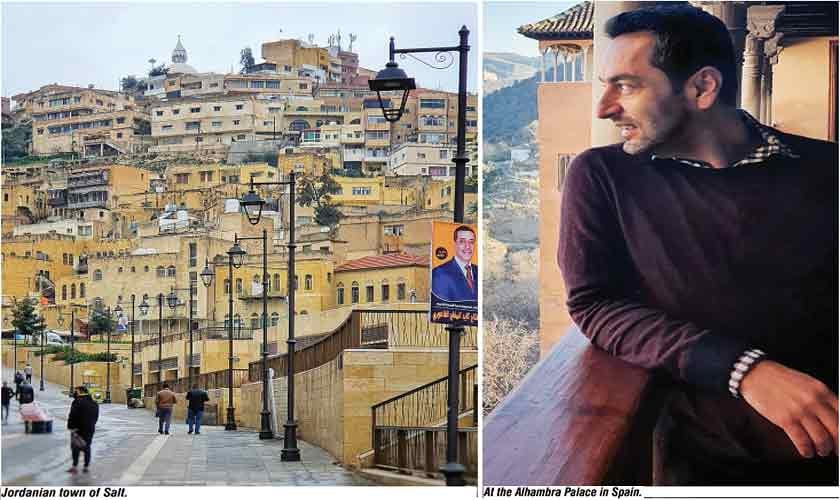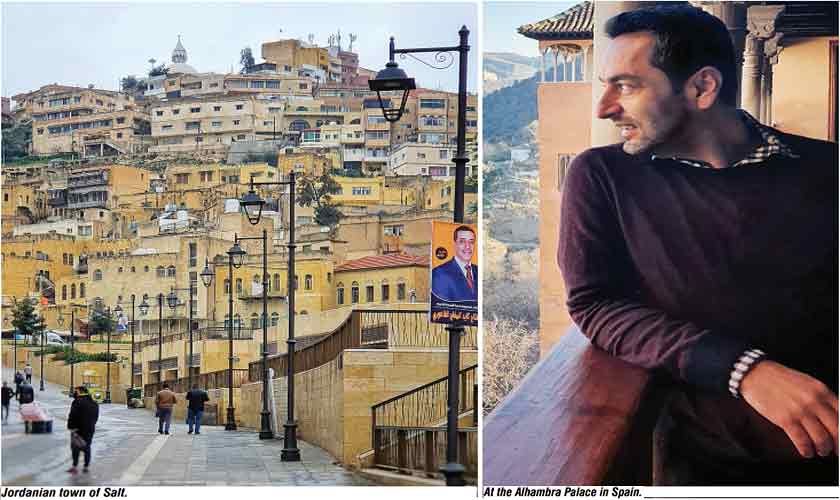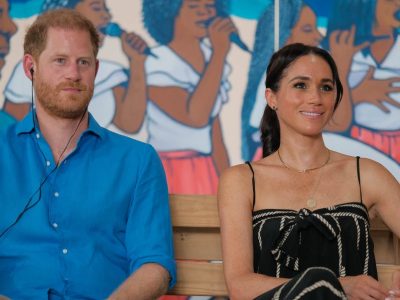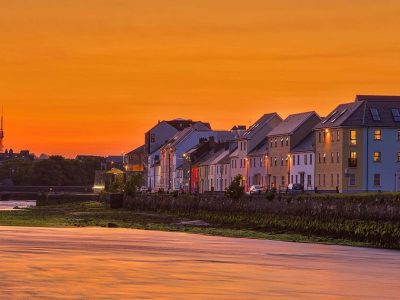he News on Sunday: How old were you when you decided to travel the world? What inspired you?
Shueyb Gandapur: I don’t know whether it was a conscious decision. It started when I was first sent abroad by the firm where I was training to become a chartered accountant. They sent me to Abu Dhabi, UAE. I was 25 at that time. But then, and for many years later, the idea of becoming a world traveller did not occur to me as a possibility.
I think the first time I realised that this was something I could pursue seriously was when I was 32. I counted the number of countries I had visited by then and [found out] that it was 32. I found that interesting and decided that I should continue doing that. By the time I was 36, I had visited 72 countries.
It was an ongoing exploration. Maybe what kept me going was my desire to see something or visit somewhere new. Many people prefer going back to places they have [already] been to liked. For me, whether it is in travel, films or books, it is always a dilemma. [Do] you go back to what you enjoyed before, or are you going to see someplace new? If you go back to where you have been before, are you missing out on [a new place] by not exploring it?
TNS: How do you select your travel destinations? Do you plan and organise your trips to make the most of each destination?
SG: Travel requires planning. Especially with a Pakistani passport, it requires a lot of planning. You apply for the visa and wait for it. There is always the question whether the request will be granted. So you have to put off the last bits of planning until the last moment, for example, buying the tickets. So yes, I always have a few destinations on my mind. I keep planning. I have options A, B, C and D. Out of those, I then see where the tickets are the cheapest, what visa I can acquire easily and in time for my upcoming vacation, etc. I have a British passport now, so I have a bit more flexibility. I can plan a bit more on the fly, something that I wasn’t able to do earlier.
TNS: Having travelled to 85 countries on a Pakistani passport, what were some of the biggest challenges you faced? How did you find it in you to keep travelling despite those?
SG: Yeah, the challenges are there. You have to jump through the hoops. There are no shortcuts to it. Some people used to say that since I have been to many countries, it should be easy for me to get visas. But I think the opposite happened to me because immigration departments in some countries got a bit suspicious of my reason for visiting so many countries.
On this basis, I have been interrogated in some countries. They questioned my motivation to visit places that are not considered very touristy. To answer your question about what kept me going, to put it simply, I think my motivation to explore the world was bigger than the deterrence of potential rejections.
Also, I think the world is pretty big. If you get rejected from one side, you can always think of somewhere else to go. Then, you go back to try for that place after a few years. The effort continues, and I think one thing that I sometimes repeat when I am asked, and it does sound like a bit of a cliché to me now, but I think as a global citizen, it is more like asserting my right. I belong to the world and the world belongs to me as much as to you or to any person who lives on this planet.
So, to assert your right, once you have faced rejection, don’t take it to heart; try again until you get a yes.
TNS: Which countries have the more strenuous immigration processes?
SG: Some are the usual suspects [laughs], but some surprised me. Once, as I was travelling to Mexico, my flight had to transition through the US. It was a very long flight, starting from Islamabad to Doha, Qatar to Washington DC, and then to Mexico City. It was only when I reached Doha that they asked if I had a US visa. I said no. They told me I couldn’t take the flight. I explained that my destination was Mexico City, not the US. They said that, for airport transit, I needed a visa. I told the airline staff that they should’ve informed me when they were boarding me in Islamabad.
They admitted their mistake but said that I couldn’t go. They would have to reroute me. They then made a very convoluted connection for me from Doha to Sao Paulo to Buenos Aires and then to Mexico City. So it took me some days to reach my destination. Another funny thing was that the flight to Sao Paulo was after 24 hours. I arrived in Sao Paulo, and the same aircraft had to fly to Buenos Aires, so we stayed on the plane. After a couple of hours, an official came in and said that the flight was no longer going to Buenos Aires because of a volcano eruption in Chile and the sky was not clear enough for the plane to fly.
Shueyb Gandapur has been to 105 countries – 85 of which he visited on his Pakistani passport, a record no other person has claimed. He spent his childhood and teenage in his hometown, Dera Ismail Khan, before moving to Islamabad to train as a chartered accountant. He occasionally writes about his travels. Some of the features have been published in The News on Sunday, The Quint, Writers Mosaic, The Aleph Review, Whytt Magazine and The Friday Times. His first book – a travelogue covering his travels to India – is scheduled to come out later this year. His artistic pursuits include painting, calligraphy, and travel photography, which he shares on his Instagram account. In the conversation below, Gandapur talks about where his passion for travel comes from; how he juggles his career with his wanderlust; what it means to be pulled aside for “random checks” at airports; and random acts of kindness from strangers he has experienced during his travels.
After spending a whole day in Brazil, they rerouted me through Colombia and Panama Eventually, I did reach Mexico City. By the time I reached there, the deadline for my purpose of visit had already passed. It was a work trip.
The first time I applied for a US visa, it took a whole year between the application and when I received the visa. When I first arrived in the US at Orlando Airport, they took me aside for additional checks and asked me to bring my bag from the conveyor. Then they opened my bag and looked at, smelled and tested every single item I had there, including my clothes and toiletries, as if I was coming from a crime scene.
TNS: Can you recount some of the cultural misconceptions about Pakistan you have encountered during your travels? How did you address those?
SG: One thing I’ve noticed while travelling is that when people ask where you’re from, they generally seem interested in learning about your country, like what it’s like and places to visit. However, when I mention where I’m from, the first question they ask is about security. How are things there? Are things okay? Are people still dying? Are there bomb blasts happening? Their primary concern is safety because the general perception is that it is a very unsafe place.
Whenever I’m asked about the situation of women in Pakistan, I tell them that there isn’t a single narrative for Pakistani women; it varies based on class, income and whether one is from an urban or rural area. While there’s no denying that women from my part of the world do not enjoy as much freedom as they do in the West, the perception of them being always confined to homes to cook food and raise kids isn’t universally representative. It’s not uncommon to find professionally educated women in urban workplaces and rural women contributing to the economy by working in the fields.
People often ask me about marriages. Some of them are baffled by the concept of an arranged marriage. They wonder how one can get married without knowing the person. They presume that people are forced into these marriages. I have to explain to them that arranged marriages and forced marriages are two different things.
TNS: Do you think the more touristy cities, like Paris or London, are safer to visit than more rural or off-the-beaten-path destinations?
SG: The thing is, as a traveller, you should do your research about the places you intend to visit. While some places are really safe, others are not. Some places may have a reputation for being unsafe, but your experience might prove otherwise because you go there and see for yourself that the place isn’t as bad as you had heard. An important thing to note is that in big cities, you have better access to help in case something bad happens. You can easily access the police and find someone who speaks a language you understand. But if you venture somewhere far-flung, like in mountains, deserts or villages, and an accident happens there, you might not have access to resources or facilities like hospitals or police or find people who understand your language. This is a key difference between rural and urban areas.
In rural areas, there’s another aspect you experience, which is a sense of community or ownership. When you visit a village, perhaps everyone will treat you like their guest. People might even feel responsible for your safety. Cities are more impersonal, right? People there are more concerned with their own daily lives and may not be concerned about visitors. If something happens to you, people may pass you by without stopping to look. This is different in smaller places because if people see you in danger, they will stop and do something about it.
TNS: There has always been much talk about promoting tourism in Pakistan. What practical steps can be taken to make this country more tourism-friendly?
SG: I think the first thing that tourists look for is safety. Most tourists are from rich countries. They have more spending power. The first thing they do when they [are planning to] book a holiday is to check the travel advisories. [For some places] travel advisories always suggest going at your own risk or even not going at all. So basically, security is paramount. If you improve things for your citizens, they will automatically improve for the tourists.
Safety is primarily a concern for the locals. They are the ones who live there day and night. The tourists just come and go. Another critical aspect for tourists is having some degree of personal freedom. For example, sometimes tourists wear local clothes in order to avoid unwanted attention when visiting certain parts of Pakistan. This is another factor that I think goes hand in hand with security.
Affordable accommodation and good road infrastructure are also important. Many adventurous travellers are happy to navigate these challenges as long as safety is assured because I know many people visit Kenya or Nepal. They don’t have good roads or infrastructure in these countries, but throngs of tourists go there because the first and foremost element, safety, is taken care of.
TNS: Your travel writing has a unique style. It often incorporates elements of fiction. Do you think your reading habits have influenced this style?
SG: I’m sure there must be some influence. My favourite writers, whose style I admire the most, are fiction authors. Whether consciously or subconsciously, their style seeps into how I write, whether it’s fiction or non-fiction. Nonfiction too can be creative, right? I’d be glad if some of that is showing in the way I write. I think it definitely has an impact because, as it is said, the more you read, the better you can write.
TNS: How does experiencing places you’ve read about in books feel?
SG: What I enjoy the most is not travel books because they are filled with practical information but stories from a place as they provide another perspective, not like history written by the victor, as they say. Some little thing or place might be mentioned in a novel set in the country I am planning to visit. When I go there, I look for it, and when I find it, it feels wonderful. For example, I read Najib Mahfouz’s Palace of Desire, in which he writes about this cafe where all the intelligentsia of Cairo met to talk about stories of the day and exchange views about what was going on in the country.
When I went to Egypt, I looked for that cafe. I came across many cafes and kept thinking, this must be it. It was only later that I found out that Mahfouz was not referring to a real café; in fact, he created that cafe from his imagination, but that too had come from original cafes, right? So, when you discover something that you have read about – and not in a guidebook but in a novel as a place where stories happen – it brings a different kind of joy. You can only get this joy if you associate stories with places and feel like you are walking in the footsteps of the characters in that story.
A longer version of the interview is available online
The interviewer is a staff member











